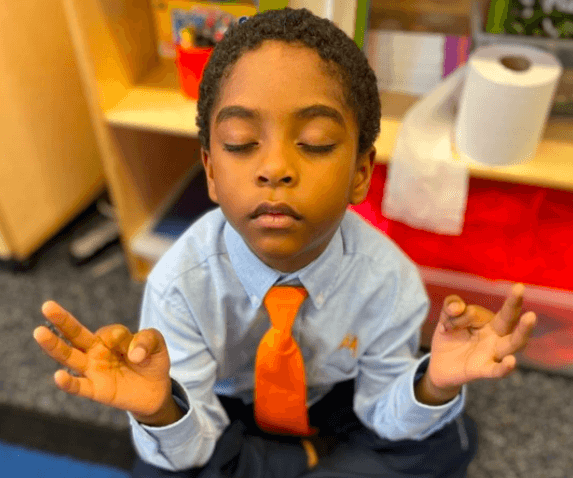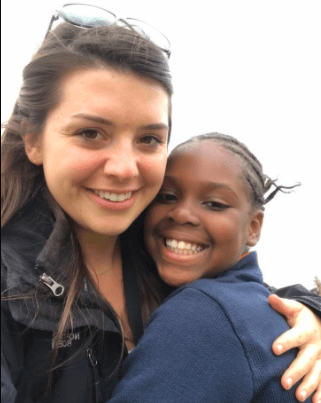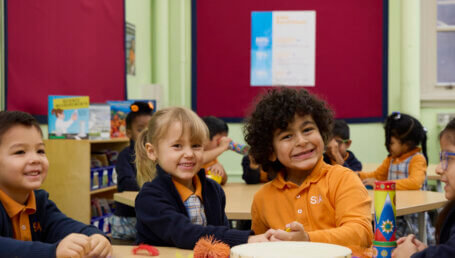
The circumstances brought on by COVID-19 have been devastating. Some may have lost family members or close friends, while others might not have firsthand experience of this. Regardless, all our lives have changed dramatically, and scholars may be wondering how to handle big feelings and big questions. It is tough to balance caring for yourself and your kids, while also managing the responsibilities of home and work. We talked to three mental health professionals about how parents can help their kids build healthy habits and reduce worry, anxiety, and stress during this trying time.
 Talk to Your Kids
Talk to Your Kids
Kids are so much smarter than we give them credit for. They are sensitive and attuned to the world around them, so they’ve picked up on the fact that it has changed dramatically. Rather than let kids drum up scary scenarios in their heads, we should sit down and empower them with tools and information. By opening the door to a conversation, you help them gain a sense of control over the situation, which automatically decreases anxiety.
It’s important to be direct and truthful with kids when having these conversations, no matter what age. We need to tell them that this is hard. That people are getting sick. That it’s okay to be scared, and that, sometimes, we get scared too. It’s not the fear itself that matters, but it’s how we handle our fear that makes a difference. Instead of letting fear control our lives, we can find ways to cope and focus on the kind of people we want to be in this world — adaptable, generous, and hopeful.
If you find yourself overwhelmed, there are resources that can help you get these conversations started. PBS Kids has a great article that can help guide you on how to be reassuring and realistic at the same time. The National Association of School Psychologists (NASP) also recently published some tips on how to help kids talk about and cope with anxiety. — Rachel Holleran, Associate of Scholar Crisis Support and Prevention

Find a Coping Skill
Anxiety. Sadness. Anger. Frustration. These are big emotions for kids, some of which they might be feeling during this crisis. When adults feel them, they might go on a walk to clear their head, call a friend for advice, or even take a nap. These are some examples of “coping skills” — ways to calm down so that our emotions don’t control our functioning — and half of the time, we use them without even thinking about it. Kids need them too, especially when confronted with emotions that they might not be used to handling. The trick? We have to practice them when we’re calm in order for them to be effective when we’re not. That’s because not all coping skills are created equal: while I like to break out my dumbbells and exercise when I’m anxious, someone else might like to draw, take a long bath, or finally make that red-velvet cookie recipe they’ve been eager to try. I made this 30-Day Coping Skills Challenge to help kids learn what coping skills work best for them, whether that’s crafting, positive self-talk, building their own lego car (like one of my scholars!), or yes — even cleaning their bedroom!
If you don’t know how to get started, think simple: Just have fun with your kids. Ask them to pick an activity from the list, and do it with them. Since we’re sheltering in place, we deliberately chose activities that you can do with your kids with limited space and resources. Find five to 10 minutes right before breakfast or during a lunch break to sing a song, do a dance video, or color. Then, discuss if they liked it, and why (or why not!). Older kids might prefer to do some of these on their own, like journal or call a friend. This is about kids getting to know themselves, and loving themselves all the more for it. Feelings aren’t bad, and it’s okay to feel frustration and sadness. But learning what works will give you and your scholar a roadmap to help handle these emotions in a healthy way. — Rachel Johnson, Lead Psychologist at SA Hudson Yards Elementary

Take Movement Breaks
We all move, and for the most part, we know why. We know we have to go to the fridge to get a glass of water, or stretch out our calves after a long walk. But we often forget that movement isn’t just for utility, and that it’s critical to our kids’ physical and mental development. At a time when kids are moving even less than they were a few months ago, we have to intentionally build movement breaks into the day. Movement helps kids connect thought to action and gain incredible self-awareness. This translates to longer attention spans, increased focus and concentration, and boosted self-esteem — all of which reduce stress and anxiety.
In particular, yoga is a great way to encourage movement and self-awareness. I highly recommend Cosmic Kids Yoga, a YouTube Channel filled with kid-friendly, themed yoga videos. The videos help kids move and think about their breathing in an interactive and imaginative way. Some of our teachers use these videos at the beginning of class or as a quick break, and kids have an absolute blast. Does your kid like Frozen? Harry Potter? The Three Little Pigs? There’s a video for each! In them, kids can pretend to be a snowman, a wolf, or a tree — all while getting to know themselves and their bodies. If your child is in middle or high school, they might enjoy the section titled “Playlists for Older Kids!” I have had families tell me that they put a video on for their kids while making breakfast, and it quickly became a morning ritual. Check out the first video on the home page, “Welcome to Cosmic Kids!” as a starting point, and from there, you can select a video that your scholar might like — and join your kids in on the fun! —Natasha Storonsky Becker, Lead Psychologist at SA Washington Heights
Please reach out to your scholar’s teacher or senior leader if you feel her or she requires additional support during this time. Additionally, if you or someone you know is in crisis, or is experiencing an emergency, help is available; please utilize the resources below.
- Crisis Text Line: Text HOME to 741-741 to be connected to a counselor
- NYC Well: Call 1-888-692-9355, text “WELL” to 65173, or chat with a counselor at this link.
- National Suicide Prevention Lifeline: Call 1-800-273-8255 or chat with a counselor at this link.
- 911: If you (or someone around you) are in active danger, call 911










